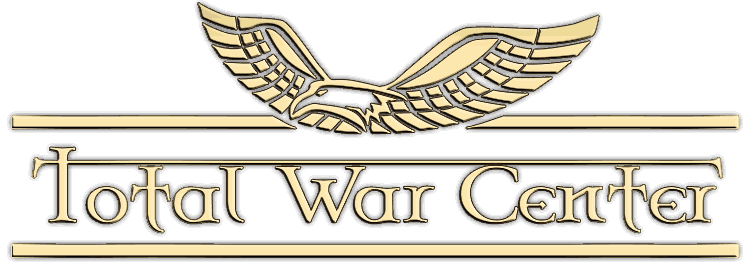https://www.theguardian.com/technolo...ol-for-control
A European parliament committee has voted for legislation that internet pioneers fear will turn the web into “a tool for surveillance and control”.In a key vote on a draft law to overhaul EU copyright rules, the parliament’s legal affairs committee on Wednesday voted for measures that would require the likes of Google and Microsoft to install filters to prevent users from uploading copyrighted materials.
First proposed by the European commission in 2016, the law attempts to update EU copyright laws for the age of Facebook and Google, with the aim of ensuring that authors, artists and journalists are “paid fairly” for their work.
Critics fear the measures would stifle freedom of expression by curtailing internet users’ ability to share content. Some lawmakers say even memes would be affected, as users would be required to take their own meme photos and give permission for others to use them.
So a tax for posting links, banning memes, and authoritarian copyright laws is just what we voted for, right?
Oh yeah, we have no say on what the EU imposes on us.
One of the most controversial provisions, article 13, would require platforms, such as Google and Microsoft, to install filters. It was adopted by the committee by 15 votes to 10.
And the article 11 proposal
https://www.independent.co.uk/life-s...-a8407566.html
Article 11 introduces a "link tax", requiring that internet companies get permission from publishers to use a snippet of their work. On websites like Google and Twitter, for instance, a small part of the article is usually shown before someone clicks into it entirely – but, under the new rule, those technology companies would have get permission and perhaps even pay to use that excerpt.
What it would boil down to is an AI system that would automatically go trawl the internet and red flag anything at all that might be a copyright strike.
The guy who invented the internet, among others, have signed a letter appealing to theinquisitioncommission to drop the measure.
Earlier in June, an open letter signed by 70 of the biggest names of the internet, including the creator of the world wide web, Tim Berners-Lee, and the Wikipedia founder, Jimmy Wales, argued that article 13 would take “an unprecedented step towards the transformation of the internet from an open platform for sharing and innovation, into a tool for the automated surveill
Internet experts are also worried about another provision adopted on Wednesday that would force internet platforms, such as Google, to pay publishers for showing snippets of news stories. Reda argues that the “link tax” would drastically curtail internet users from sharing news stories and even holiday photos on the internet. Under the proposals, “such snippets would require licensing, including even short and purely factual headlines like ‘Angela Merkel meets Theresa May’”, she wrote ahead of the vote.
The letter reads
https://www.independent.co.uk/life-s...-a8407566.html
"By requiring Internet platforms to perform automatic filtering all of the content that their users upload, Article 13 takes an unprecedented step towards the transformation of the Internet, from an open platform for sharing and innovation, into a tool for the automated surveillance and control of its users," that letter read.
These automatic filters would be completely blind to fair comment, satire, criticism and parody. They need to be stopped. It’s essentially the Youtube content ID (and we onow how that ended) but for the ENTIRE INTERNET.
https://www.theverge.com/2018/6/19/1...-upload-filter
Remember the time YouTube Content ID took down a video with birds chirping in the background because an avant-garde song in its copyright database also had birds chirping in the background? Remember the time NASA’s videos of a Mars landing got taken down by a news agency? Remember the time a live stream got cut off because people started singing “Happy Birthday”? And all this happened despite the fact that Google is really good at what it does.
It sets up a dangerous framework that could be easily abused.
And these are just the immediate problems with Article 13. The long, paranoid view on Article 13 is that it creates a surveillance framework that can be co-opted for bad purposes. If companies already have upload filters for copyright infringement, why not force them to modify their filters for speech that’s critical of the government? That may sound far-fetched, but in 2015, a mysterious firm called Ares Rights started using DMCA takedowns to target sites critical of the Ecuadorian government, sending at least 74 notices on behalf of “politicians, political parties, state media, and state agencies” in Ecuador.
https://www.theguardian.com/world/20...disinformation
Britain's top EC commissioner lays out plan to tackle 'disinformation'
The UK’s most senior representative in the European commission has set out a Brussels plan to crack down on disinformation campaigns executed by Russia and non-state actors, which he suggests were deployed during the 2016 Brexit referendum...
...King told an audience in Brussels: “What once might have been dismissed as fantasy has rapidly entered the world of fact with everything from a referendum on an EU agreement with Ukraine, through a referendum on EU membership to a presidential election apparently being fair game.”
It’s quite clear they want to regulate truth, and control what we are and aren’t allowed to say. A referendum on EU membership is due to ‘misinformation’ (aka anything that opposes the EU cuz muh Russia conspiracy)
is a ‘fantasy’? Oh so only now you’re admitting that EU membership is essentially non-negotiable, and if you disagreee you’re a Russian troll. Gotcha.
Matteo Salvini on the EU’s quest to silence dissidence, on Facebook, Youtube and Russian fake news elsewhere. (Turn on captions)















 Reply With Quote
Reply With Quote








